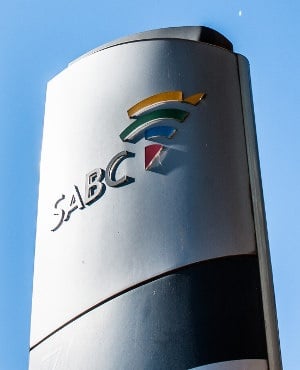In the past three years SABC lost as much as R3.8bn on monies paid for sports broadcasting rights. If the SABC continued on this trajectory it would need another R6.8bn, members of Parliament heard on Tuesday.
It would also be "reckless" and "irresponsible" for the SABC board to sell off radio stations without considering how it impacts the SABC's ability to fulfill its mandate, they were told.
Board chairperson Bongumusa Makhathini and several of SABC's leadership briefed Parliament's portfolio committee on communications on the public broadcaster's turnaround strategy on Wednesday.
Among the matters which came up was the SABC's application to Treasury for a R3.2bn capital injection. Treasury has set out preconditions that have to be met before any of the monies can be released. Makhathini said the SABC has met all 11 of the preconditions – however, there is one which is a sticking point, as it relates to the selling off of non-core assets.
The SABC must identify non-core assets for sale to assist in reducing the re-capitalisation required by government. Although the SABC has developed a strategy for its property portfolio, it needs more time to evaluate its media assets, Makhathini said.
He explained that the SABC is mandated to provide content to the public in 14 official languages on its various broadcasting platforms. The SABC has 19 radio stations, and as tempting as it may seem to sell off radio stations, it is not that simple, because it could negatively impact the SABC's ability to fulfill its mandate, he said.
"It will be reckless and irresponsible for the board to wake up tomorrow to say, 'Sell radio stations'," he said. The board has requested more time to analyse and evaluate its existing assets.
'We have plans to turn them around'
Makhathini said that although some TV channels and stations are not performing financially, it would be premature to sell them off, especially as the turnaround strategy sets out plans to bolster revenue at the stations and channels in question.
"Some channels are under-performing, but we have plans to turn them around. We have got to be given time to implement the [turnaround] strategy," he said.
Makhathini said that the cash injection from Treasury could help the SABC approach advertisers. The broadcaster has been working to reduce costs which has prevented it from advertising its platforms to marketers, he said.
Makhathini added that so far the SABC has been able to save R1bn and cut losses by 33% to R483m for the 2018/19 financial year. "We have been able to meet our mandate under difficult circumstances," he said.
Commenting on the SABC's financial needs, CEO Madoda Mxakwe said the broadcaster needed R2bn by the end of the month. He did not comment on whether Treasury agreed that the pre-conditions for the cash injection had been met, but he said the Department of Communications and G-Tech, a company that worked with the SABC to refine its turnaround plan, did agree that pre-conditions were met.
Too cash-strapped to broadcast sports
Responding to a question as to why the SABC cannot broadcast the Rugby World Cup which kicks off this week, as well as other sports of national interests such as soccer and rugby, Mxakwe explained that rights to broadcast sports of national interest are exhorbitant and one of the main cost drivers of the SABC.
"It has been extremely expensive and has affected our profit and loss statement," Mxakwe said. In the past, three years SABC lost as much as R3.8bn on monies paid for sports broadcasting rights. If the SABC continued on this trajectory it would need another R6.8bn, which is not sustainable, he said.
In terms of the R483m loss made last year, about R400m is attributable to sports broadcasting rights, he said. "What is spent and what we got was not making commercial sense," he told the committee.
The 2019 rugby world cup would have cost the SABC $28m for broadcasting rights on television and $60 000 for broadcasting rights on radio, he said. These costs do not factor production costs of R900 000.
Mxakwe also responded to concerns of a blackout on air – and said the past 12 months had been challenging as everything "that could go wrong, did [go wrong]." However, he assured that the SABC employees had been committed and despite the difficulties and not having a financial injection, the broadcaster was still able to fulfill its mandate.




















